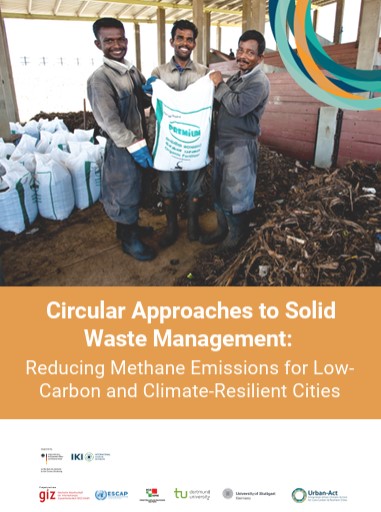The Urban-Act project aims to promote low-carbon and resilient urban development in the Asia-Pacific region from April 2022 to December 2027. It supports countries in achieving their Nationally Determined Contributions (NDCs) and advancing the Sustainable Development Goals (SDGs) through collaboration among various regional partners.

Asia and the Pacific face escalating challenges in solid waste management due to continued urbanization, with waste generation projected to reach 1.9 billion tons by 2050, marking a 56 per cent increase since 2016. Methane emissions from municipal solid waste are a key driver of climate change and currently account for 13 per cent of all global anthropogenic methane.
This brief by Economic and Social Commission for Asia and the Pacific (ESCAP) highlights the urgent need to transition from linear disposal to circular systems that prioritize waste prevention, material circularity, and regenerative resource use in order to curb methane emissions. The brief advocates for policy innovation, infrastructure investment, and community engagement (based on Asia-Pacific successes) to convert waste to resources. It calls for strong regulations, organic waste incentives, regional knowledge sharing, and climate goal alignment for sustainable urban development and methane reduction.


